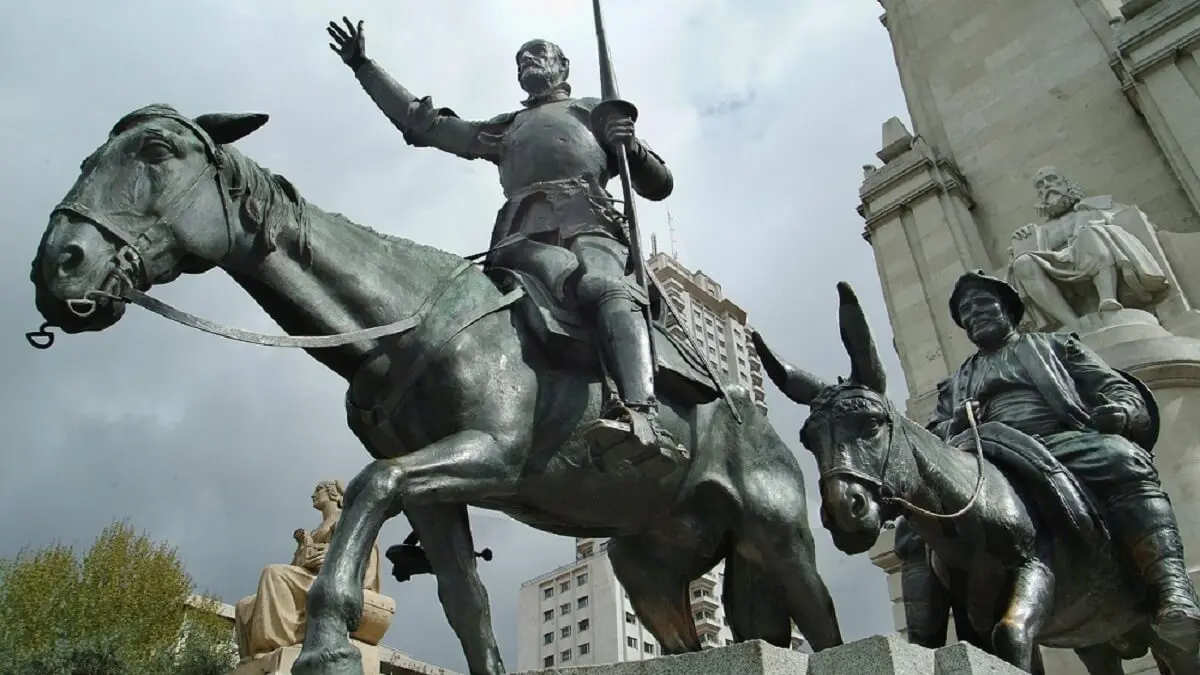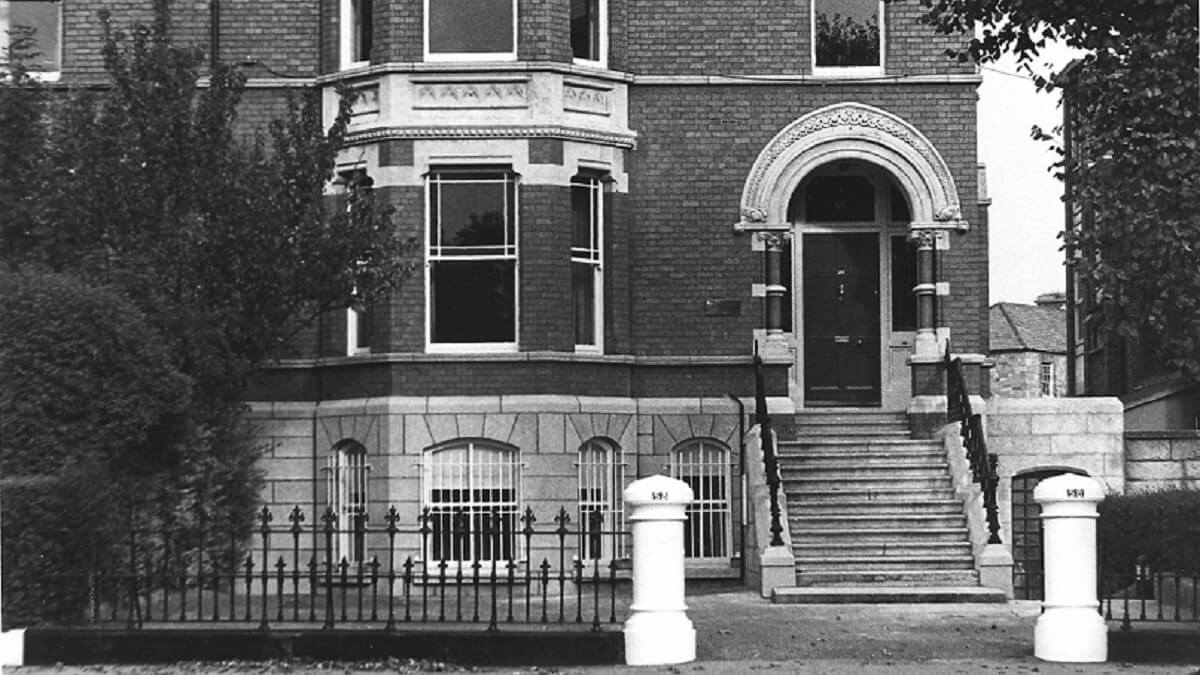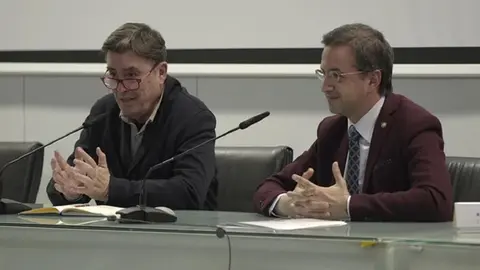La Mancha Week in Dublin, Ireland, in 1973

The meeting in Toledo of the directors of the Cervantes Institutes, convened by the management of the Instituto Cervantes in Madrid, to listen to and coordinate the lines of action of the institutes around the world, to adapt to technological changes and to report on the opening of new institutes, it reminded me of the time when the directors of the institutes and cultural centres of Spain abroad, which existed and were attached to the Cervantes Institute when it was created in 1991, met on their own initiative, if they went to Madrid for the Christmas holidays, to get to know each other personally and to discuss their social and labour rights.
Did the institutes and cultural centres of Spain Abroad exist before the creation of the Cervantes Institute in 1991?
If you don't know, it is not easy to find out that they existed, as you can't find much information on the internet about their activities before they were attached to the Cervantes Institute. Nor is the date of their creation and attachment to the Cervantes Institute included on the website of the Institute to which they were attached, which would be a proof of recognition of the staff who served in them. If a person's date of birth is important in their biography, even if they are entitled to change their name, the date of inauguration of an institution should also, if appropriate, be part of its history and be on its website.
The institutes and cultural centres of Spain Abroad that were attached to the Cervantes Institute, some like the one in Dublin with 20 years of existence since 1971, before being renamed Cervantes Institute in 1991, planned their programme of activities on their own initiative and with few directives from Madrid except for the information, consultation and approval of the Spanish ambassador of the country in which the institute or cultural centre was located. Their working tools were typewriters, fax machines, paper, envelopes and postage stamps. There were no mobile phones, internet, social networks or artificial intelligence. The initiative of the director, with the support and collaboration of his staff, and scarce resources, were the driving force behind the activities of the institutes and cultural centres.

Thus arose the organisation of a La Mancha Week in Ireland, by the Spanish Cultural Institute of Dublin, with no budget, volunteers, the collaboration of the Association of Teachers of Spanish in Ireland, the support of the La Mancha and Irish media as well as some official Spanish and Irish institutions and a glass of wine from Valdepeñas, taking advantage as a centre of interest and publicity throughout the country of the screening of the film "Man of La Mancha", with the actors Peter O'Toole and Sofía Loren.
The Instituto Cultural Español de Dublín, attached to the Instituto Cervantes in 1991, was founded by the Spanish Government in 1971 and began its activities in 1972. One of its first important activities was the organisation of La Mancha Week in Ireland from 18 to 25 February 1973, on the occasion of the screening of the film "Man of La Mancha" throughout the country.
The objectives of this activity in Ireland were to disseminate the works of Miguel de Cervantes, as well as to make known the customs, traditions, music, folklore, artistic heritage, tourist attractions, agricultural production and wines of La Mancha, without forgetting its importance for the study of the Spanish language.
The activities carried out included: reception offered to cultural, artistic, press, radio and television personalities of the country with wines from La Mancha; organisation of special sessions with a screening of the film " Man of La Mancha" in the Savoy cinema in Dublin, at reduced prices for teachers and students of Spanish, in collaboration with the Association of Teachers of Spanish in Ireland, created in 1969; publication of an informative programme with full colour prints of the film; publication of posters and leaflets for distribution about Miguel de Cervantes.
Spanish Language teachers included, within their weekly timetable in their schools, commentaries on the literary importance of "Don Quixote" and its relationship with the region of La Mancha. To this end, the Spanish Cultural Institute provided them with audiovisual and informative material on La Mancha and Cervantes' work, with the help and collaboration of cultural and tourist institutions in Madrid, Toledo and Ciudad Real.
30,000 copies of the brochure "La Mancha", published by the Directorate General for the Promotion of Tourism of the Ministry of Information and Tourism, were distributed in collaboration with Irish teachers of the Spanish language, the Savoy cinema in Dublin, as well as with the Hispanic Studies departments of Irish universities, public libraries and tourism schools in Dublin.
On the initiative of the Spanish Cultural Institute and with the collaboration of the Savoy cinema, the Spanish Book Institute, as well as the sending and donation of Cervantes publications from Spanish publishers and the "Hodges Figgis" bookshop in Dublin, an exhibition of the works of Miguel de Cervantes was organised in the shop window and exhibition space of the aforementioned bookshop, which were subsequently donated to the public libraries of Dublin.
The Institute published a brief bibliographic statistical bulletin of the editions of "El Ingenioso Hidalgo Don Quijote de La Mancha", to highlight the important transcendence and enormous diffusion that the immortal work of Miguel de Cervantes has had throughout the world since the 1605 edition of its First Part, sent to all the media in Ireland; to Spanish Language teachers, as well as to the Spanish Book Institute, which published it in the magazine El Libro Español.
A competition was organised by Viajes Meliá Dublin to win a holiday for two to Spain.
The Irish press, radio and television ran features highlighting Cervantes' work, commenting on the general characteristics of the La Mancha region, as well as the programme of activities organised for La Mancha Week in Ireland.
The man from La Mancha served as a promoter, in 1973, to make known in a whole country, Ireland, what today is called the Community of Castilla-La Mancha, as well as to promote cultural and social relations between Spain and Ireland.



